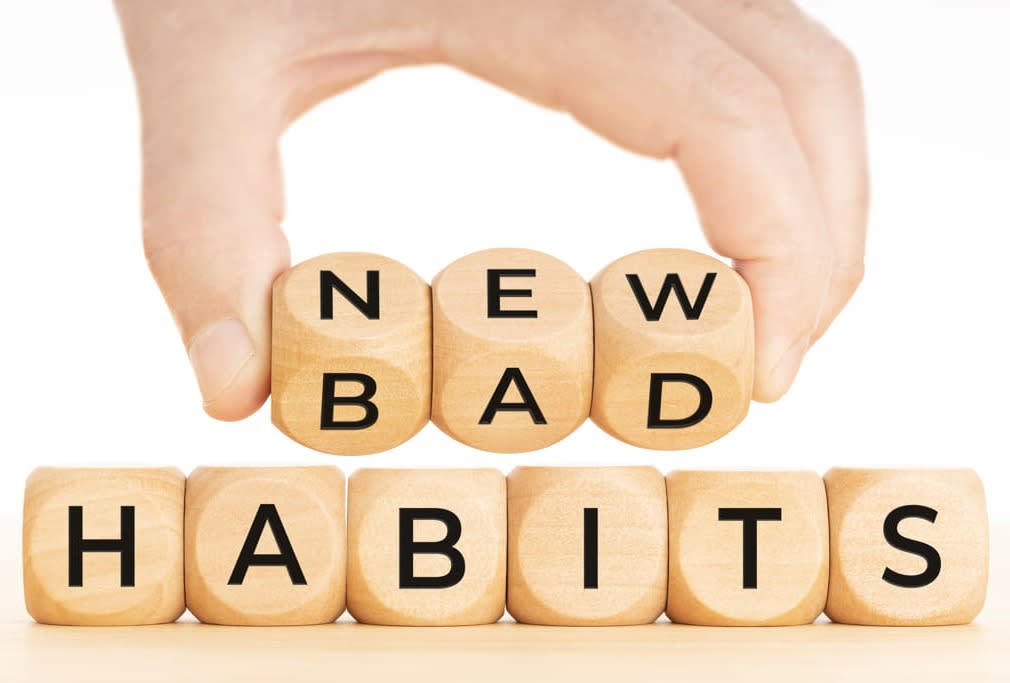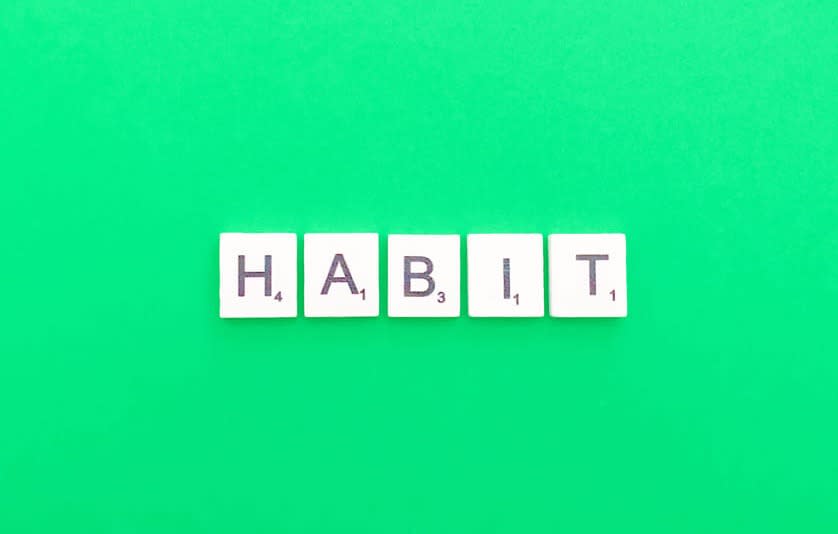
5 Powerful Habit Triggers To build Successful Habits
Jun 4, 2023
By Will Moore
“Successful people are simply those with successful habits.” -Brian Tracy
What if I told you that the answer to every question you’ve ever asked yourself about your habits could be found in 4 simple laws?
“Why can’t I stick to a new exercise regime?”
“How come my diet plans always fall flat?”
“What’s stopping me from waking up an hour earlier every day?”
A theory first popularized by Charles Duhigg and later expanded by James Clear in his book Atomic Habits talks about habit formation as a 4-step feedback loop system they called a “habit loop.”
What is A “Habit Loop”?
I go over what a habit loop is in more detail in another article. But for now, all you need to know is that a habit loop has 4 stages that create an endless feedback loop – and that feedback loop is what creates your habits.

The four stages of a habit loop are:
The Cue – something in your external environment that triggers the whole process.
The Craving – the feeling that you need to do something (created by your brain getting a shot of dopamine in response to the cue)
The Response – the action that you actually take – yep, it’s the ‘habit’ that’s the focus of this whole thing!
The Reward – the result that satisfies the craving and gives your brain another shot of dopamine.
Every single stage of this habit loop is important for building new habits and replacing old ones, but it’s always best to start at the beginning. So, let’s take a look at the various cues that can trigger your habits.
Also read: Build Success Habits with Habit Stacking
What Are Habit Triggers?
Habit triggers, also known as cues, play a crucial role in the formation and maintenance of habits. They are the signals or events that initiate the automatic behavior known as a habit. Understanding habit triggers is essential for both developing new habits and breaking undesirable ones.
Habit triggers can be classified into various categories based on their nature. The most common types include time, location, emotional state, other people, and preceding actions. Each type of trigger can prompt specific habitual behaviors. For example, waking up (time) might trigger a morning coffee routine, entering the kitchen (location) might prompt one to check the refrigerator, feeling stressed (emotional state) might lead to nail-biting, seeing a running partner (other people) could cue a jogging routine, and finishing dinner (preceding action) might lead to the habit of dishwashing.
The power of habit triggers lies in their ability to initiate a behavior with little to no conscious thought, which is why habits can be so hard to break. The brain forms associations between the trigger and the behavior, making the response more automatic over time. This process is grounded in the habit loop theory, which consists of three elements: the cue (trigger), the routine (behavior), and the reward. The reward is what reinforces the habit loop, ensuring that the trigger effectively leads to the routine.
For those looking to change their habits, identifying and modifying these triggers is key. This can involve avoiding certain triggers if trying to break a bad habit, or creating new, positive triggers to establish better routines. For instance, placing running shoes next to the bed might be used as a new trigger to form a habit of morning exercise.
By understanding and strategically managing habit triggers, individuals can significantly influence their daily behaviors, ultimately leading to more controlled and desirable life patterns.
The 5 Habit Triggers
Every habit loop starts with a cue – one thing that triggers the entire process. Identifying your cues is a key step in replacing your “failure habits” with “success habits."

Many things can trigger a habit loop. I’ve broken them down into 5 powerful habit triggers to help you recognize them in your habit loops.
Habit Trigger #1: People
Ever noticed how you drink more or curse more when you’re around certain people? Maybe your parents or teachers told you to quit hanging around with someone because they were a “bad influence.”
Peer pressure is very real, and it doesn’t end with adulthood. As humans, we all want to be accepted and feel like a part of the tribe. So, it’s no surprise that we adapt our behavior to fit in with whoever we’re with.
This is what Dan Pena meant when he said, “show me your friends, and I will show you your future.” Our behavior and habits are influenced by the people we associate with.
How you can use it:
The simplest way to make people triggers work for you is to cultivate relationships with people who already have the habits you want to create. If you want to start working out, find someone in your circle who already goes to the gym or hire a personal trainer. The moment you answer the question "what are my values" is when you realize the type of people you want to hang out with.
Habit Trigger #2: Emotions
Do you have a go-to comfort food when you’re feeling down in the dumps? Maybe a feeling of boredom is what causes you to pick up your phone and start scrolling through social media. Maybe it’s even feelings of joy or celebration that lead you into drinking “one more” beer or some other indulgence.
In each case, the emotional state that you’re in is the habit cue.
How you can use it:
It all comes down to emotional intelligence and being better at recognizing emotions as you’re experiencing them. When you notice that you’ve slipped into a failure habit pattern, try asking yourself, “how was I feeling when I reached for the cookie jar?”
I won’t lie to you, though. While building awareness of your emotional state is a powerful skill for building success habits, being aware simultaneously as you’re experiencing the emotion is a difficult skill to master.
Habit Trigger #3: Time
How do you start your day every morning? Do you have some sort of morning checklist? For a lot of folks, they head straight for that first cup of Joe. In this case, your alarm goes off at the same time every day, and that triggers the habit of making a cup of coffee.
For people working in a 9-5 with set breaks and lunchtimes, you may notice you start feeling hungry or lose concentration right before your scheduled break.
And it’s not just the time of day. Certain habits could be triggered by a specific day of the week or special dates like your birthday or the holidays. Ever noticed how you start drinking more or eating more sweets and cookies in the run-up to Thanksgiving or Christmas?
How you can use it:
Time can be a very powerful tool for building healthy routines around your success habits. If you know that you always work out at 5 pm, then that automatically becomes your workout time – just like having a wake-up alarm or a lunch break at the same time every day.
Habit Trigger #4: Events
So many of your habits will be triggered by something else that happens – either an action you take yourself or something completely outside of your control. It could be fastening your safety belt or checking the rearview mirror when you get into your car, reaching for your phone when it vibrates on your desk, or craving a cigarette after a meal.
All of these habits are triggered by the event that happened immediately before.
How you can use it:
The good news here is that leveraging events is one of the simplest ways to create new positive habits. Habit stacking, for example, is where you stack your new positive habit on top of the one you already do. You take advantage of the natural momentum that comes from one behavior and leads to the next.
Habit Trigger #5: Environment
If you ask me, the environment is the single most influential habit trigger of them all. All day, every day, you’re reacting to habit cues in your environment. Wherever you are: your home, your office, at the gym, in your car – there will be a set of habits and behaviors that you fall into on autopilot.
There’s a good reason the environment has such a big role in forming habits. Your environment is made up of a combination of all the other triggers. Location plays a big part, but when it’s combined with a certain time, a preceding event, or specific people, it can create a powerful trigger that’s especially hard to break.
How you can use it:
If you want to have good habits, you need to create a successful environment. The path of least resistance is always the easiest to follow, so ensure that your environment sets you up for success. If your goal is to create a exercise habit of lifting weights, make sure your gym equipment is visible. Want to make a morning run part of your routine? Lay out your running clothes the night before and put those sneakers in front of the door. Morning routine matters! This is something you should do before bed every night.
Better still, create a completely new environment to build your habit. If you want to learn how to cook healthier meals, sign up for a live cooking course that gets you out of your kitchen.
The most important thing here is recognizing and acknowledging your triggers and how they impact your behavior. When you do that, you’ve already taken the first step to breaking your failure habits. From there, it’s a matter of creating an environment that encourages success habits.
Creating A Success-Habit Environment
“Happiness is a habit—cultivate it.” -Elbert Hubbard
As we’ve seen, your habits are formed in response to the various systems at work in your life. A success-habit environment is essentially a system that gets your habits working for you instead of against you.
We’ve already looked at some examples of how to create an environment that supports the formation of success habits by replacing the path of least resistance to your old habits. That’s a good starting point because the ultimate purpose of a success-habit environment is to minimize friction and make it easy for your brain to form new habit loops in response to old triggers.
Our weekly habit tracker with a simple interface to keep track of the elements of your life that contribute most to your happiness. It will help you to replace your old bad habits with the success habits.

One of the best ways to reduce friction in creating new success habits is to make the whole process more fun – so you actually WANT to take action. I’ve taken it a step further and created a way to gamify success habit formation in your 5 Core Areas Of Happiness.
